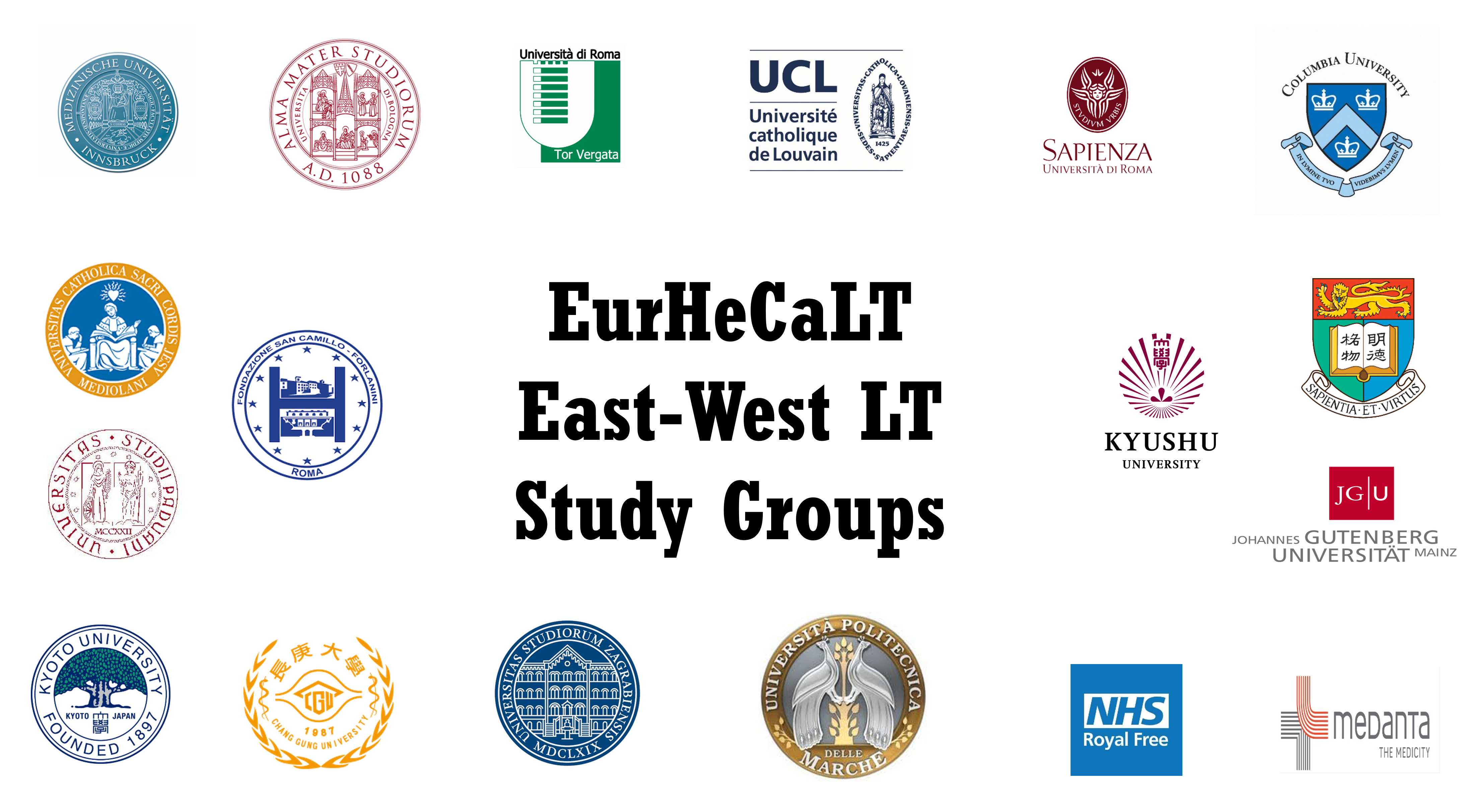Paper references
Development and validation of an Artificial Intelligence model for a better prediction of hepatocellular cancer recurrence after transplantation: A retrospective international study
Authors and Contributors
Quirino Lai 1 • Carmine De Stefano 2 • Jean Emond 3 • Prashant Bhangui 4 • Toru Ikegami 5 • Benedikt Schaefer 6 • Maria Hoppe-Lotichius 7 • Anna Mrzljak 8 • Takashi Ito 9 • Marco Vivarelli 10 • Giuseppe Tisone 11 • Salvatore Agnes 12 • Giuseppe M. Ettorre 13 • Massimo Rossi 1 • Emmanuel Tsochatzis 14 • Chung Mau Lo 15 • Chao-Long Chen 16 • Umberto Cillo 17 • Matteo Ravaioli 18 • Jan P Lerut 19 on behalf of the EurHeCaLT and the West-East LT Study Group.
1. General Surgery and Organ Transplantation Unit, AOU Policlinico Umberto I, Sapienza University of Rome, Italy; 2. Data Science and Engineering, Polytechnic of Turin, Italy; 3. Division of Liver Transplantation and Hepatobiliary Surgery, Department of Surgery, Weill Cornell Medicine - Columbia University, New York, US; 4. Medanta Institute of Liver Transplantation and Regenerative Medicine, Medanta-The Medicity, Gurgaon, India; 5. Department of Surgery and Science, Kyushu University, Fukuoka, Japan; 6. Medical University of Innsbruck, Department of Medicine I, Gastroenterology, Hepatology and Endocrinology, Innsbruck, Austria; 7. Klinik für Allgemein-, Viszeral- und Transplantationschirurgie, Universitätsmedizin Mainz, Mainz, Germany; 8. Liver Transplant Centre, Merkur University of Zagreb, Zagreb, Croatia; 9. Division of Hepato-Biliary-Pancreatic and Transplant Surgery, Department of Surgery, Graduate School of Medicine, Kyoto, Japan; 10. Unit of Hepatobiliary Surgery and Transplantation, AOU Ospedali Riuniti, Polytechnic University of Marche, Ancona, Italy; 11. Department of Surgical Sciences and Medical Sciences University of Rome-Tor Vergata, Rome, Italy; 12. Liver Unit, Department of Surgery, Catholic University - Fondazione Policlinico Universitario Agostino Gemelli IRCCS, Rome, Italy; 13. Department of Transplantation and General Surgery, San Camillo Hospital, Rome, Italy; 14. UCL Institute for Liver and Digestive Health and Royal Free Sheila Sherlock Liver Centre, Royal Free Hospital, London, UK; 15. Hong Kong University – Department of Surgery, Queen Mary Hospital, University of Hong Kong, Hong Kong SAR of China; 16. Department of Surgery, Kaohsiung Chang Gung Memorial Hospital, Chang Gung University College of Medicine, Kaohsiung, Taiwan; 17. Department of Surgery, Oncology and Gastroenterology, University of Padua, Padua, Italy; 18. Department of General Surgery and Transplantation, IRCCS, Azienda Ospedaliero-Universitaria di Bologna, Bologna University, Bologna, Italy; 19. Institut de Recherche Clinique, Université catholique de Louvain, Brussels, Belgium.

